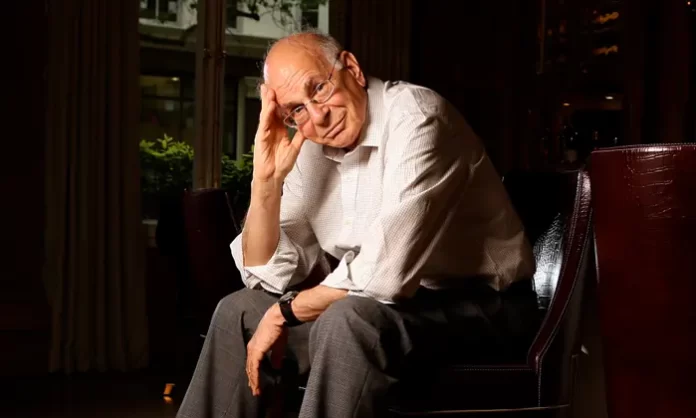The team here at Caja were sad to read the obituary for Daniel Kahneman in the New York times on the 27th of March. Daniel Kahneman, a psychologist whose work paved the way for the emergence of Behavioural Economics, passed away at the age of 90. Kahneman’s pioneering research earned him a Nobel Prize in Economic Sciences in 2002 and his legacy resonates across the Caja team, shaping the way we understand human behaviour and how we approach decision-making processes.
Kahneman’s collaboration with cognitive psychologist Amos Tversky yielded ground-breaking insights that challenged the traditional assumptions of rational economic behaviour. Together, they researched the intricacies of human judgment and decision-making, uncovering the hard-wired mental biases that often lead to irrational choices. At Caja, Kahneman’s work forms the bedrock and building blocks of our Behavioural Science practice and underpins much of what we teach through our Behavioural Science Academy.
Kahneman’s accessible writing style and illustrative examples have made his work widely influential beyond academic circles. His bestselling book, “Thinking, Fast and Slow,” serves as a beacon of insight for professionals across various industries, offering practical guidance on decision-making and cognitive biases. At Caja, we draw inspiration from Kahneman’s ability to communicate complex concepts in a clear and engaging manner, fostering a culture of continuous learning and growth.
As we reflect on Kahneman’s legacy, we are reminded of his humility and eagerness to engage in debate. His willingness to enlist the help of competitors and colleagues alike exemplifies the spirit of collaboration that in our small way try to emulate in our approach at Caja.
While we reflect on the loss of a visionary thinker, we celebrate Kahneman’s enduring impact on the field of Behavioural Economics. His insights into human cognition and decision-making continue to shape our understanding of behaviours and why our choices determine how we consume products and services. His legacy will continue as academia and businesses continue to leverage the principles of Behavioural Science to drive innovation and create positive and ethical change.
Daniel Kahneman (1934–2024), may his legacy continue to inspire.




